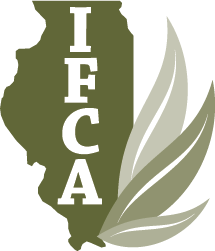Legislators Head Back to Spring this Week
Legislators returned to Springfield this week for the first full week of session since the inauguration. With committees still being filled and bills being filed at a quick pace, most of the work this week will take place behind the scenes as legislators, advocates and lobbyists begin negotiations on items that have been or will be filed.
The primary issue that will shape this year's session is the state budget. Since covid-19, Illinois has managed to go several years with a budget surplus and has built $2 billion Rainy Day Fund, thanks in large part to federal funds from the federal American Rescue Plan Act (ARPA) and state budget management. However, federal funding has long ended, and state funding experts have projected a $3.2 billion budget deficit for the coming fiscal year, though, some insiders fear the deficit could be closer to $4 billion, or roughly 8.5% of the total $53.4 billion budget. The problem, which is often the case in Illinois, is not revenue, which is expected to remain flat, but spending, which is expected to continue to grow with increased K-12 education funding, labor contracts and health care, and more.
The looming deficit creates an issue that is largely new to the numerous state legislators who took office while the state was driving a federally-backed state surplus. Now many legislators will have to consider budget cuts for the first time in their careers, making it a difficult year.
In the coming Week, IFCA will send out all the legislation that we are watching this upcoming spring session to keep our members informed.
The primary issue that will shape this year's session is the state budget. Since covid-19, Illinois has managed to go several years with a budget surplus and has built $2 billion Rainy Day Fund, thanks in large part to federal funds from the federal American Rescue Plan Act (ARPA) and state budget management. However, federal funding has long ended, and state funding experts have projected a $3.2 billion budget deficit for the coming fiscal year, though, some insiders fear the deficit could be closer to $4 billion, or roughly 8.5% of the total $53.4 billion budget. The problem, which is often the case in Illinois, is not revenue, which is expected to remain flat, but spending, which is expected to continue to grow with increased K-12 education funding, labor contracts and health care, and more.
The looming deficit creates an issue that is largely new to the numerous state legislators who took office while the state was driving a federally-backed state surplus. Now many legislators will have to consider budget cuts for the first time in their careers, making it a difficult year.
In the coming Week, IFCA will send out all the legislation that we are watching this upcoming spring session to keep our members informed.
